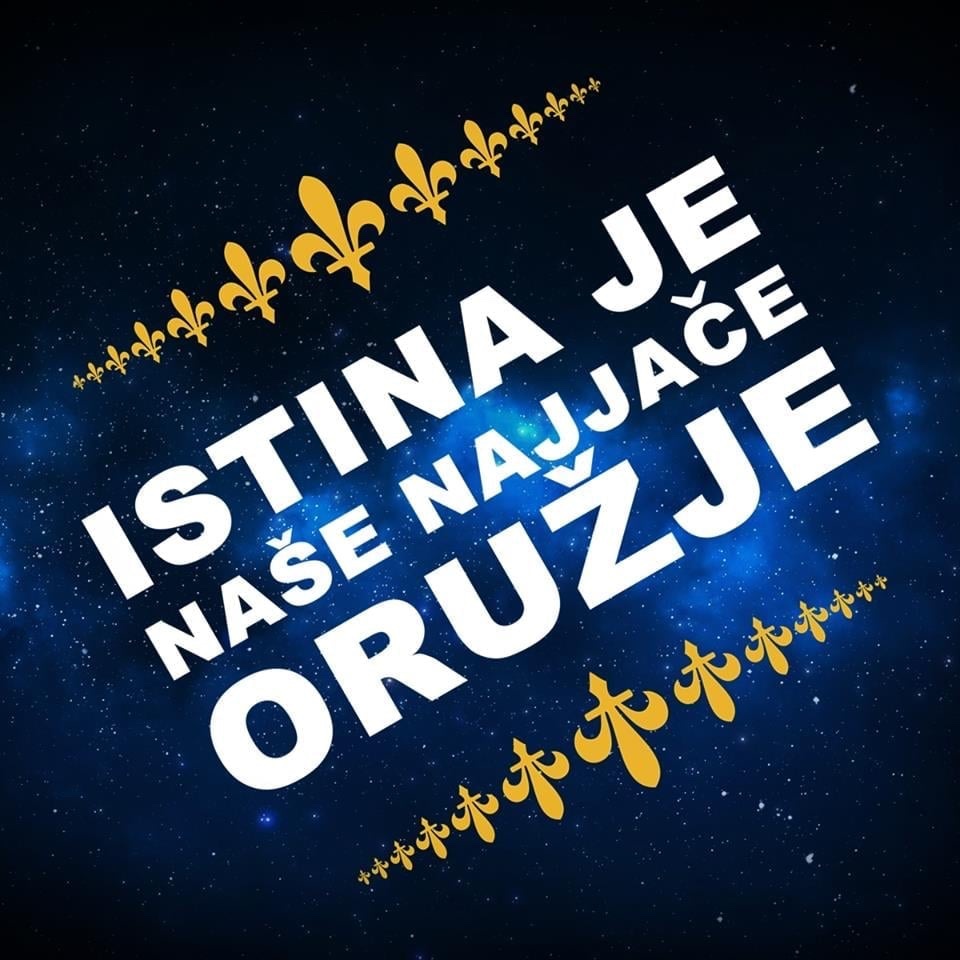The ZARA association from Vienna, Austria sent a letter to the University of Vienna in support of the action by the Institute for the research of genocide Canada IGC.
ZARA association expressed concern about the allegations made in the final report of the
Independent International Commission of Inquiry on the Suffering of All People in the Srebrenica Region Between 1992 and 1995.
It was particularly concerned about the lack of a clear statement from the University of Vienna distancing itself from the commission and Dr. Walter Manoschek.
After watching a video of a discussion event involving Dr. Walter Manoschek, the organization shares the IGC’s assessment of the statements made by Dr. Walter Manoschek in connection with the results of the commission are problematic.
ZARA association points out that the genocide that took place in Srebrenica in 1992 has already been thoroughly investigated by
the International Criminal Tribunal for the former Yugoslavia (ICTY), and there are several judgments by the ICTY as well as a judgment by the International Court of Justice.
Furthermore, ZARA association points out that there exists the suspicion of incitement to hatred (§ 283 Abs1 Z3 StGB) accoriding to the Austrian law.
We are calling on the bosnian associations in Austria to get involved in the action against the genocide denial and to legally clarify the suspicion pointed by the ZARA associations.
Dear Sir or Madam,
Since 2000, the ZARA association has been operating a counselling centre for victims of racism and since 2017 a counselling centre for victims and witnesses of hate speech online. Clients can approach us with their concerns and receive legal advice and support from us.
In the course of our counselling work, our client drew our attention to the final report of the Independent International Commission of Inquiry into All Victims of Suffering in the Srebrenica Region Between 1992 and 1995, which was published in July 2021. The report was commissioned by Republika Srpska under the direction of the Israeli historian Gideon Greif and involved retired university professor Dr. Walter Manoschek as a member of the commission.
Our client expressed deep concern about the allegations made in the final report, which deny the genocide that took place in Srebrenica, as it has been established by courts. Our client was particularly shocked that a former member of the University of Vienna, retired university professor Dr. Walter Manoschek, participated in the commission, and that, according to our client, there has been no clear distancing by the University of Vienna from the commission and from Dr. Walter Manoschek. Although there has been an exchange with the University of Vienna, in which the university clarified that it recognizes the judgments of the International Criminal Tribunal for the former Yugoslavia and the International Court of Justice, which have established the genocide in Srebrenica, our client argues that there has not been an official and public statement by the university on this matter. According to our client, such a statement should at least include a clear distancing from the investigation commission and from Univ. Prof. emeritus Dr. Walter Manoschek.
To help us understand the problems of the final report published by the investigation commission and the statements made therein, our client has drawn our attention, in addition to a broadcast by the TV channel Arte, to an online discussion event by the Promedia publishing house, in which Univ. Prof. emeritus Dr. Walter Manoschek was interviewed about his work in the investigation commission and its results. The mentioned discussion event, moderated by the publisher of Promedia Verlag, Dr. Hannes Hofbauer, and attended by Germinal Civikov in addition to Univ. Prof. emeritus Dr. Walter Manoschek, is still available online and can be accessed on YouTube at the following link: https://www.youtube.com/watch?v=nkKSg2gX8as.
After watching this video of the mentioned discussion event, we share our client’s assessment that the statements made by Univ. Prof. emeritus Dr. Walter Manoschek in connection with the results of the Independent International Commission of Inquiry on the suffering of all people in the Srebrenica region between 1992 and 1995 are to be classified as extremely problematic. Univ. Prof. emeritus Dr. Walter Manoschek immediately addresses one of the most significant statements of the investigation commission at the beginning of the discussion (from minute 8:13 of the video), namely that the commission had come to the conclusion that while serious war crimes had been committed against Bosniak prisoners of war by the Bosnian Serb army in July 1995 in Srebrenica, there had been no genocide with the aim of liquidating parts or even the entire Bosnian population.
Furthermore, Univ.-Prof. emeritus Dr. Walter Manoschek states in this context that for 25 years it has not been reported that the majority of the murdered were soldiers and that there had never been an assassination of about 8000 male civilians, contrary to previous assumptions. When asked by the moderator whether the results of the investigation commission were not a blow to both sides, Univ.-Prof. emeritus Dr. Walter Manoschek not only confirms this assumption but also compares the narrative of the genocide against the Bosniak Muslim population in Srebrenica with that of the victim theory regarding Austria’s role in National Socialism (“Although not comparable in content, but in function”). Throughout the discussion event, highly problematic statements are repeatedly made. For example, at one point (starting from minute 17:00), Univ.-Prof. emeritus Dr. Walter Manoschek refers to the fact that the narrative of the genocide against the Bosniak population persists as the greatest propaganda success since 1945 and criticizes at the same time that everything coming from the Mothers of Srebrenica is unquestionably accepted as the truth.
During the interview, Univ.-Prof. emeritus Dr. Walter Manoschek emphasizes several times that the investigation commission was not interested in political polemics but worked purely based on facts (e.g. from minute 5:30). The same approach is desired by the commission from the Bosniak-Muslim side because it is not possible to have a reasonable discussion as long as it is based purely on emotions (among others, from minute 52:00).
However, the investigation commission, and with it also Univ.-Prof. emeritus Dr. Walter Manoschek, overlook the essential fact that the genocide that took place in Srebrenica in 1992 is a crime that has already been thoroughly investigated by the International Criminal Tribunal for the former Yugoslavia (ICTY), and there are several judgments by the ICTY as well as a judgment by the International Court of Justice.
We as an organization cannot answer the question of whether the aforementioned investigation commission worked scientifically and based on facts within our professional competence. However, we would like to point out that the statements made by Univ.-Prof. emeritus Dr. Walter Manoschek during the discussion event of the Promedia-Verlag could be understood as denial or gross trivialization of the judicially established genocide against the Bosniak Muslim population in Srebrenica, which could even give rise to
suspicion of incitement to hatred (§ 283 Abs1 Z3 StGB). Whether this offense is fulfilled or not, ultimately, must be examined by the public prosecutor’s office and the courts.
However, we consider it important that the University of Vienna takes a clear position in such a case, not least because the statements made by Univ.-Prof. i.R. Dr. Walter Manoschek are highly offensive to affected individuals, such as our client. If the University has already taken a position on this matter, we kindly request that you provide us with the corresponding statement so that we can pass it on to our client.
We thank you for your attention and efforts and remain at your disposal for further questions regarding this case.


